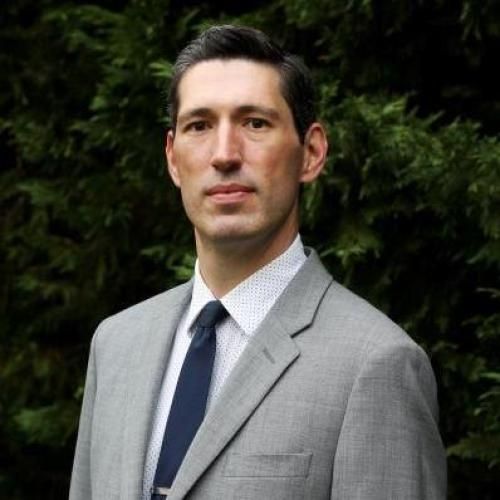Overview
Andrew Nurkin is a Hart Associate Professor of the Practice with the Hart Leadership Program. Andrew holds an MFA in poetry from Vermont College of Fine Arts, a Master of Divinity from Yale Divinity School, and an undergraduate degree in English from Duke University. At the Free Library, Andrew led public programs in the humanities, arts, and civic engagement for one of the largest public library systems in the country. He previously served as Executive Director of Princeton AlumniCorps, an independent, national nonprofit that builds civic leadership skills among alumni across generations. Over the course of his remarkably entrepreneurial career, Andrew has acquired a body of knowledge, skills, and experience that make him a wonderful addition to the Hart Leadership Program.
His academic training–which includes time spent in Hart Leadership Program classes working with founding director Bruce Payne — offers a powerful theoretical and conceptual foundation for project and community-based research, the very heart of the HLP’s mission and pedagogy. Since leaving Duke, Andrew has built a career developing innovative civic engagement programming at leading educational centers across the nation, including an alternative spring break program, a program to train emerging leaders in the nonprofit sector, a post-graduate public service fellowship, and a student-centered civic values initiative at Princeton University. He has piloted and implemented new ways of mentoring young leaders and the communities with which they engage, while tackling key systemic democracy challenges along the way through initiatives in prison education, civic leadership, and the interaction of the arts and social change.
A well-regarded poet, effective community organizer, innovative thought leader, and tireless program builder at Princeton and in Philadelphia, Andrew is a national leader rethinking what civic, political, and arts engagement should look like in the 21st century. “Through the arts, we train ourselves to listen to voices alienated from other structures of power and modes of speech,” states Andrew. “The arts give us truth and nuance that we do not find elsewhere.” For him, the entire vision of what the arts can do and of what leadership within the arts looks like has changed. At Sanford, he envisions plans to offer courses on leadership and the arts, where students tackle questions such as: what do we learn from the arts about leadership generally? what do the playwright, the conductor, the poet, the documentary filmmaker have to teach about leadership in different contexts? and, importantly, what types of leadership do the arts need now after 2020?”
As Hart associate professor of the practice, Andrew ascribes to a model of leadership that is about facilitation. “Facilitative leadership premises that groups and organizations already have the gifts and wisdom needed to address their challenges and fulfill their aspirations,” states Andrew. “A leader’s job is to draw that out through asking the right questions, through listening deeply, and through synthesizing perspectives into a shared, actionable, and resourced vision.” He is excited to meet the students that he’ll be teaching in the fall, through PPS 270: Lead the Way Durham, a course about community-based leadership and civic engagement in Durham; and PPS 415: Servant Leadership in a Democracy, the capstone seminar for Service Opportunities in Leadership.

